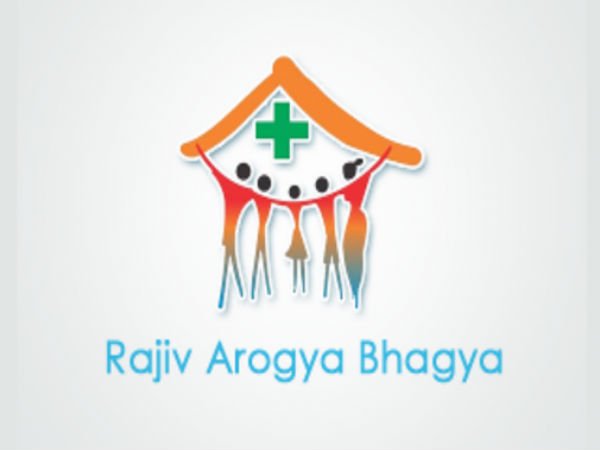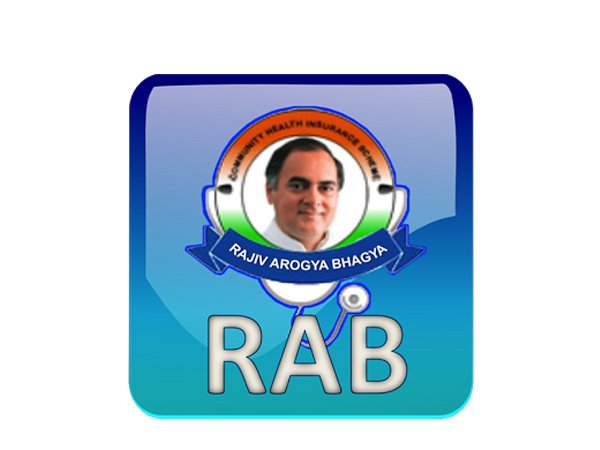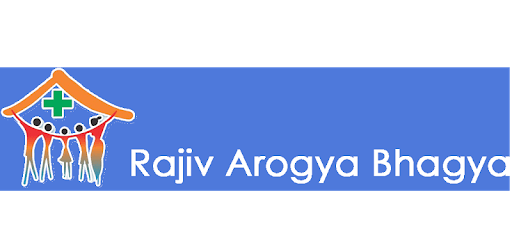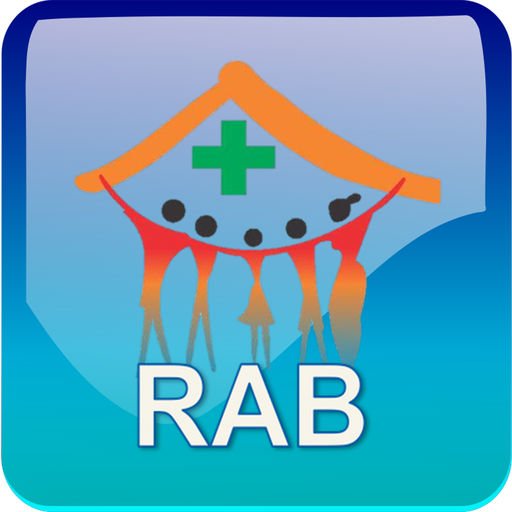
Rajiv Arogya Bhagya (Rab) Scheme is a health Scheme that ensures that more and more citizens avail of the best and latest medical care below the poverty line and above poverty line (excluding white cardholders). This scheme is being implemented by them. The Government of Karnataka has decided to introduce this universal health care scheme. It is expected that all citizens in the state will get subsidized or free health care. This facility will include emergency care and government hospitals as well as private facilities will be available on the schedule of the state government for this special program.
The Rajiv Arogya Bhagya (RAB) scheme is a Healthcare Assurance of the Karnataka Government to make specialty tertiary healthcare benefits and treatment affordable and accessible to the Above Poverty Line (APL) inhabitants of Karnataka.
For the Rajiv Arogya Bhagya, there is no need for registration. All you (the patient) have to do is to take your Above Poverty Line (APL) or the Below Poverty Line (BPL) Card whenever he or she visits the hospital for their treatment.
The produce of the Rajiv Arogya Bhagya (RAB) Scheme is the same as the Pradhan Mantri Arogya Mitra for verification purposes.
Key Features Of The Rajiv Arogya Bhagya (RAB) Scheme:
Table of Contents

Source :- http://darshanbelgaum . com/app-for-apl-under-rajiv-arogya-bhagya-scheme/
Here are the key features of the Rajiv Arogya Bhagya (RAB) scheme mentioned below. Check it out:
Estimated Budget For the RAB:
It has been estimated that a scheme of this size will require as much as INR 2000/- crore for the proper implementation.
Referral To Private Hospitals:
The applicant won’t be capable to choose for treatment in private hospitals firstly, but if the Government specified hospitals do not have the required treatment facility only then they will bring up the patient to any private clinic.
Fee For The Health Card:
The applicants have to pay INR 10/- to avail of the unique health card. If the individual loses his or her original health card, then the applicant has to get a replica health card by paying INR 20/-
Extra Financial Support For The Treatment:
In case any member of the family, who is eligible, is suffering from serious illness and thus requires more money for the treatment then the authority of the state will provide extra monetary support of INR 50000/-.
Payment For The Above Poverty Line (APL) Candidate:
The Above poverty line (APL) candidates have to pay INR 70% of his or her treatment cost and the State Government will pay the rest 30%.
Payment For The Below Poverty Line (BPL) Candidate:
For the below poverty line (BPL) candidates the treatment is entirely on the State Government, so far they remain in the specified range.
Total Treatment Package For All Families:
The Rajiv Arogya Bhagya (RAB) scheme will provide maximum INR 1.5 lakhs to meet the medical expenditures of each family under this scheme, during a financial year.
Total Number Of Beneficiaries:
It is estimated that the scheme will be able to offer better and free medical support to around 1.4 crore legal residents of Karnataka.
Offering Better Medical Facilities:
The main and foremost object of this Rajiv Arogya Bhagya (RAB) Scheme is to offer health facilities for all.
Benefits of Rajiv Arogya Bhagya Scheme:
Beneficiaries of this system are separated into two groups, such as Category A and Category B. Individuals falling under Category A comprise farmers, unorganized sector laborers, impoverished households, members of the SC/ST community, government workers, cooperative society members, media personnel, and representatives. All those who were not included in Category A will fall under Category B.
There is no cost for those who fall under Category A. However, applicants in Category B would be required to pay an additional fee of Rs. 700 per person in urban areas and Rs. 300 per person in rural regions.
Beneficiaries who fall into Category A will receive cashless care, while those who fall into Category B will receive a 30% government reimbursement.
Eligibility For The Rajiv Arogya Bhagya (RAB) Scheme

The eligibility criteria for the Rajiv Arogya Bhagya (RAB) scheme are given below:
- The individual has to be a resident of Karnataka State
- There is no age limit for the scheme; any age group of people is eligible for this scheme.
- There is no certain income bar for this scheme. Anyone from the above poverty line (APL) to below poverty line (BPL) individual or family can have this scheme.
Impact of Rajiv Arogya Bhagya Scheme on Healthcare in Karnataka:
The plan includes 24 fields of specialization, one preliminary surgical package, and 1393 defined packages. In addition to the current services for Reproductive and Child Health (RCH) and infectious diseases, the Rajiv Arogya Bhagya Scheme will now encompass Non-Communicable Diseases (NCDs), Mental Health, ENT, Ophthalmology, Oral Health, Geriatric & Palliative Health Care, and Trauma Care. In addition to offering free diagnostic and pharmaceutical services, the Rajiv Arogya Bhagya Scheme Health and Wellness Centers (AB-HWCs) will increase the variety of medical examinations and therapies that are accessible.
List of Diseases Covered Under Rajiv Arogya Bhagya Scheme:
The Pradhan Mantri or PM-JAY The Government of India’s flagship program is the Jan Arogya Yojana. The critical illness coverage that PM-JAY provides to its beneficiaries is one of its most important features. Numerous serious illnesses that are costly to treat and can place a heavy financial burden on families are covered by this coverage. To make use of the Rajiv Arogya Bhagya Scheme Yojana’s benefits, you must have an Ayushman Card.
The following medical problems are covered by PM-JAY’s critical illness coverage:
- Cancer
- Kidney diseases
- Heart diseases
- Liver diseases
- Respiratory diseases
- Neurological disorders
- Mental illnesses
- Burn injuries
- Neonatal diseases
- Congenital disorders
- Communicable diseases (such as tuberculosis and malaria)
- Daycare procedures and surgeries
Documents Required For The Rajiv Arogya Bhagya (RAB) Scheme:

- Id proof
- Residential documents
- Aadhar card
- PDS card
- Ration card
- Biometric Details
The Enrollment Process:

Source :- appadvice . com
- The interested candidate has to go to the nearby center or selected hospital for registration purposes.
- The enrollment staff or the Arogya Mitra will collect your documents such as your Aadhar card to open your digital applicant form on their official portal.
- After that, the enrollment staff will complete your biometric details.
- Once the enrollment staff confirms the identity of the individual, the process will proceed.
- You will have to sign a form there to permit your ID details.
- Then the KYC will be filled by the enrollment staff.
- Once the KYC is done, you become a part of this scheme.
List of Hospitals for Implementation Under Rajiv Arogya Bhagya Scheme

|
Sl. No. |
District |
Hospital |
| 1. | Bangalore | 1. Bowring Lady Curzon2. CV Raman Indiranagar, Govt., Hospital
3. Ghosha Hospital 4. Jayanagar Govt., Hospital 5. K.C. General Hospital 6. Minto Hospital 6. PMSSY Super Speciality Hospital, BMCRI 7. Sri Jayadeva Institute of Cardiovascular Sciences and Research 8. Vani Vilas Hospital 9. Victoria Hospital |
| 2. | Bidar | Bidar Medical College |
| 3. | Belagavi | Belgaum Medical College |
| 4. | Bellary | VIMS Bellary Medical College |
| 5. | Ballary | District Hospital, Ballary |
| 6. | Bagalkote | District Hospital, Bagalkote |
| 7. | Chamarajnagar | Chamarajnagar Medical College |
| 8. | Chikkaballapura | District Hospital, Chikkaballapura |
| 9. | Chitradurga | District Hospital, Chitradurga |
| 10. | Chikkamagalur | District Hospital, Chikkamagalur |
| 11. | Davanagere | 1. Chigateri District Hospital, Davanagere2. Mother and Child Hospital, Davanagere |
| 12. | Dakshina Kannada | 1. Lady Goshen Hospital, Mangalore2. WENLOCK Hospital Mangalore |
| 13. | Dharwad | KIMS Hospital Hubli |
| 14. | Gadag | Gadag Medical College |
| 15. | Haveri | District Hospital, Haveri |
| 16. | Hassan | Hassan Medical College |
| 17. | Kodagu | Kodagu Medical College |
| 18. | Koppal | Koppal Medical College |
| 19. | Kalaburgi | Kalaburgi Medical College Hospital |
| 20. | Kolar | Kolar District Hospital |
| 21. | Mysuru | 1. Cheluvamba2. Prince Krishnarajkumari Tuberculosis Hospital (PKTB)
3. KR Hospital |
| 22. | Mandya | Mandya Medical College Hospital |
| 23. | Raichur | Raichur Medical College |
| 24. | Ramanagara | District Hospital, Ramanagara |
| 25. | Raichur | Raichur Medical College |
| 26. | Shimoga | Shimoga Medical College Hospital |
| 27. | Tumakuru | District Hospital, Tumakuru |
| 28. | Udupi | District Hospital, Udupi |
| 29. | Uttar Kannada | Karwar Medical College |
| 30. | Vijayapura | District Hospital, Vijayapura |
| 31. | Yadgir | District Hospital, Yadgir |
For Arogya Bhagya hospitals list in Karnataka pdf click here
Rajiv Arogya Bhagya Scheme vs Other Health Insurance Schemes:
APL households can receive super specialized care for seven different types of ailments, including cardiology, cancer, urology, neurosurgery, pediatric surgery, burns, and polytrauma, at any private or public hospital. The program is based on co-payment.
FAQ:
Q. What is Rajiv Arogya Bhagya’s scheme?
A. The Karnataka government’s RAB Health Assurance Scheme aims to provide above-poverty line (APL) residents with access to and affordability for super-specialized level tertiary healthcare services.
Q. What Are The Objectives Of Rajiv Arogya Bhagya’s scheme?
A. The program’s goal is to increase BPL families’ access to high-quality healthcare through a designated network of healthcare providers for the treatment of conditions that need hospitalization, surgeries, and therapies. The government pays the full premium on behalf of the BPL families.
Cardiovascular, hepatic, hepatic, pancreatic, kidney, neurosurgery, burns, post-burn contracture surgeries for functional improvement, prosthetics (artificial limbs), cancer treatment (surgery, chemotherapy, radiotherapy), polytrauma (including cases covered by the MV Act), and cochlear implant surgery with audio-verbal therapy for children under two years old are among the systems covered by the scheme. The program covers all cases of the aforementioned disorders that already exist.
Recommended Articles:-
- Know All About The State Employee Cashless Treatment Scheme
- Pradhan Mantri Kaushal Vikas Yojana Guidelines & Features
- Swadesh Darshan Scheme: Know In Details About The Scheme
- Standup India Scheme Features, Eligibility & Related Details
- Pradhan Mantri Awas Yojana Eligibility, Subsidy & All Details
- Know About Some Important Government Schemes For Farmers
- Pradhan Mantri Rozgar Yojana Loan Online A/C Opening Process
- Beti Bachao Beti Padhao Yojana: Know In Details about It
- What Is Intensified Mission Indradhanush & How It Works?
- See The Procedure To Mudra Bank Loan Apply Online
- CGHS Gaya | Facilities | Hospitals
- CGHS Gangtok | Facilities | Hospitals
- CGHS Bareilly Wellness Centres List
- CGHS Kohima | Opening Wellness Centers (Allopathic)
- CGHS Dibrugarh | Facilities | Hospitals